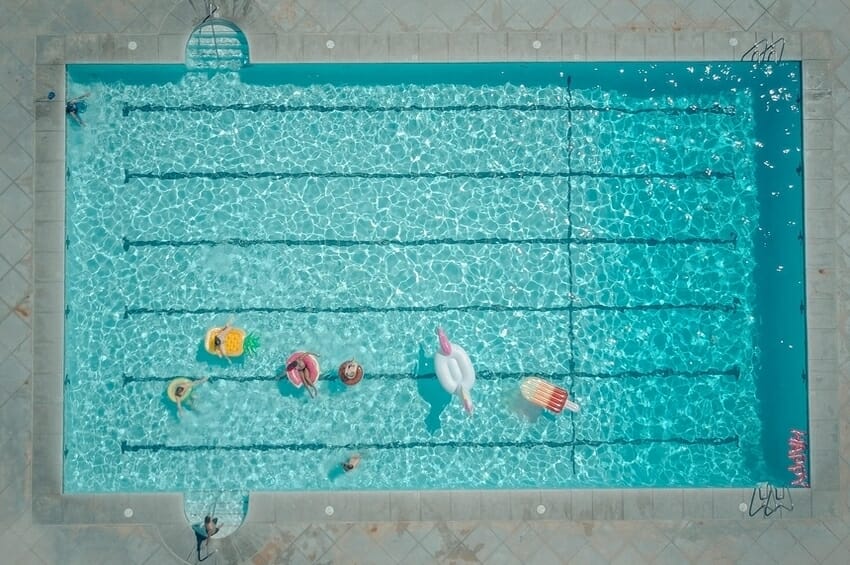
- August 23, 2021
- Attorney David Mann
- Personal Injury
While swimming is always a fun exercise and a good activity for people of all ages, it is also one of the most common causes of accidents in children. According to the World Health Organization, drowning is the third leading cause of unintentional injury death worldwide, accounting for 7% of all injury-related deaths.
In this article, we discuss important water safety guidelines to prevent unnecessary accidents and deaths to help you maximize fun in the water.
What Are Water Safety Accidents?
An accident can be classified as a water safety accident when it has occurred in or around the presence of water. There are several kinds of accidents that occur in the water, including:
Boating or Waterway Accidents
Many water accidents involve the use or misuse of boats or naval crafts. Serious injuries can result when boats collide with each other or with objects in or near the water. Victims may perish from their injuries or from drowning.
Operating water vehicles while under the influence of alcohol or drugs is illegal, just as it is unlawful to drive motor vehicles on land in that condition. Doing this may lead to the loss of a boating license and punitive restitution for any damage or injury.
Other causes for this type of accident are poorly constructed engines or machines, boat explosions, and other water-related negligence.
Swimming Pool Accidents
These accidents take place in private pools, public parks, clubs, and other commercial facilities. Accidents like these may result from improper supervision, inadequate barriers in the pool, or drain entrapment wherein a drain’s suction traps a person’s hair, clothes, or body parts.
Drowning
Drowning is the most common type of water accident. It is basically the common thread of the ones mentioned above. According to the Centers for Disease Control and Prevention (CDC), for children ages 1–14, drowning is the second leading cause of unintentional injury death after motor vehicle crashes.
However, even though children are at a higher risk, it is important to note that anyone can drown. In the United States, there are 3,960 fatal unintentional drownings each year, including boating-related drowning—that is an average of 11 drowning deaths per day.
What Should You Do in a Water Accident?
Water accidents cause a variety of physical harms and may even lead to death.These accidents may result in drowning and near-drowning; spinal injuries resulting in quadriplegia or paraplegia; head injuries, bone fractures and breaks; cuts, lesions, punctures; and blindness or near blindness. In tragic circumstances where negligence or oversight is involved, a Wrongful death lawyer can provide guidance and representation.
In the event of a water accident, it is best to follow the correct protocol from The American Red Cross.
Find and Rescue
You can tell that a person is drowning if they are not making forward progress in the water, are vertical in the water but unable to move, or are motionless and face down. If people are missing from your boating party, find them by immediately checking and assessing the situation.
Try to figure out the best way to take the person out of the water without compromising your own safety. The recommended approach is reaching for things that can help them float or reaching out your hand instead of going into the water yourself to assist them.
Time is a crucial factor in preventing disability or death and in keeping their survival rates high.
Get Help
If you are in a place where a lifeguard or someone who can swim well is present, alert them and ask for their assistance. These people are likely trained for situations like this or are more fit to rescue the people in danger. Ask someone to call emergency medical services (EMS) as well. If you are alone, provide at least two minutes of care before calling EMS.
Do First Aid
While waiting for the expected medical help, check to see if the victim is breathing, and check their pulse. If needed, begin the resuscitation procedure, and perform CPR.
If you are the one who is in danger of drowning, try to conserve your energy and make smart decisions. Release anything on your body that adds additional weight, like equipment or clothing. Call for help by waving, shouting, or splashing water. The most important thing is to try your best to keep your head above the water for air. Panicking will lead to your using more of your oxygen and may add tension to your muscles.
Water Safety Guidelines 101
Preventing water accidents is definitely much better than rescuing someone in danger and getting them out of the water. Before your next beach or pool trip, keep in mind these water safety guidelines:
Learn to swim well.
Taking swimming lessons and encouraging everybody to learn enough swimming skills is important. Learning how to swim competently helps both you and everyone around you in avoiding dangers and casualties.
Stay in the designated areas with lifeguard supervision.
We all know that time in the water is fun and exciting, but be mindful of the areas that are considered off-limits and do not have sufficient lifeguards.
Make sure there is enough supervision, especially for children.
Never leave children unattended and do not entrust children to each other. It is best to maintain adult supervision in addition to the lifeguards available in the area.
Use a buddy system if possible.
Missing people in the water is one of the main causes of delayed rescue and fatalities. Make sure that nobody swims alone and make everyone accountable for their partner’s safety.
Wear life jackets.
It is recommended that children and inexperienced swimmers use life jackets and floaters for added safety, but we must not rely on these alone.
Prepare appropriate equipment.
Before leaving for the trip, make sure to prepare ample first aid equipment and learn CPR and resuscitation procedures.
Know your limitations.
Know where you can swim and how much you can push your body to swim in the water. Getting in the pool while intoxicated with drugs or alcohol is risky and may lead to disaster.
Be mindful.
In case of an emergency, keep calm and perform rescue protocol. Remember that seeking help is also the best way to prevent situations from worsening.
Finding Help After a Water Accident
Water accidents often happen because someone was negligent. Further investigation is usually needed to determine the best legal step to take. Hiring a swimming pool accident lawyer increases the chances of sorting everything out after the accident.
Being prepared in advance of a water outing, and being knowledgeable of rescue protocols and what to do afterward, can help make your trips memorable and hassle-free. But in the event of a water safety accident, the attorneys at Mann Law Firm are skilled swimming pool accident lawyers who know Georgia laws. Find out if you have a case. Call us for help today at (478) 742-3381.



 Before leading his own firm, Mann served for several years as in-house defense counsel for a large insurance company, which gives him unique insight into how insurance companies work. He uses this critical knowledge as an advantage for his clients. He is a tough negotiator and litigator, and he is exceptionally strategic in building cases on behalf of personal injury victims.[
Before leading his own firm, Mann served for several years as in-house defense counsel for a large insurance company, which gives him unique insight into how insurance companies work. He uses this critical knowledge as an advantage for his clients. He is a tough negotiator and litigator, and he is exceptionally strategic in building cases on behalf of personal injury victims.[ 